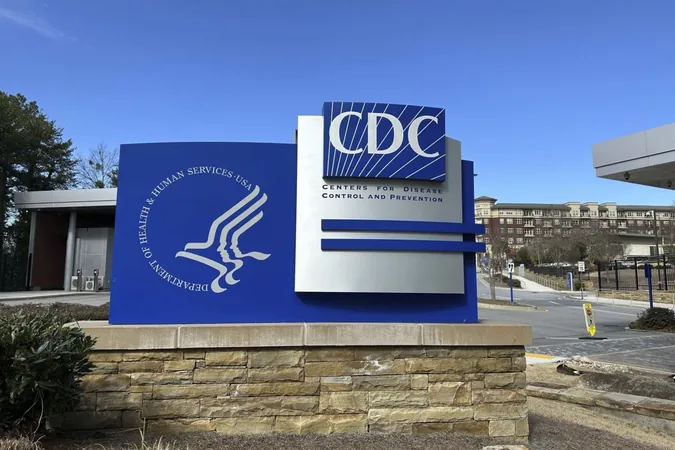
Urgent Call for Increased Canadian Health Research Funding as U.S. Agencies Face Devastating Cuts!
2025-03-31
Author: Jacques
TORONTO — In a bold move to address significant public health concerns, the Canadian Medical Association Journal (CMAJ) is urging Canadian authorities to ramp up research funding in light of alarming cuts to U.S. health agencies.
As the United States reduces its public health budget, the need for reliable health data from Canada has never been more critical.
CMAJ editor-in-chief Kirsten Patrick emphasized the importance of not just funding but also advocating for science amidst potential chaos in public health reporting.
“Now is the time to properly support Canadian health researchers and to ensure they can share their findings widely,” Patrick stated in a recently published editorial.
The ramifications of the U.S. Department of Health and Human Services' decision to cut funding and staff at vital agencies—including the Food and Drug Administration (FDA), the Centers for Disease Control and Prevention (CDC), and the National Institutes of Health (NIH)—will undoubtedly reverberate beyond its borders.
This sweeping change threatens to create a “black hole” in high-quality research data by diminishing the resources available for public health surveillance, which many countries, including Canada, depend on.
Patrick warns that Canada could bear the brunt of this deterioration.
“If we don’t improve our data-sharing capabilities among provinces and internationally, we will face severe consequences,” she cautioned.
Dr. Tom Frieden, a former CDC director, recently highlighted the far-reaching consequences at a Canadian Medical Association conference.
He warned of the possible resurgence of infectious diseases, driven by the gaps in public health measures in the U.S.
“Canada may soon find itself grappling with outbreaks of diseases like measles and drug-resistant tuberculosis that spill over from its neighbor,” he predicted.
The situation becomes more alarming with emerging health threats like the H5N1 avian flu, which has resulted in hospitalizations, including a reported case of a Canadian teenager.
U.S. virologist Angela Rasmussen raised serious concerns regarding the future of influenza surveillance.
"Our ability to respond to such threats will depend on swift identification and containment," she warned, stressing the need for high-functioning health infrastructure.
Rasmussen has been in contact with U.S. colleagues who are hindered by communication bans, risking their careers to warn others about the potential public health crisis looming on the horizon.
“Many are breaking the silence because they understand the stakes are high,” she said.
She praised the CMAJ for its proactive stance: “We need institutions to rally and raise awareness,” emphasizing the critical role Canadian journals play in defending scientific integrity and advocating for democratic values in research.
Patrick agreed, stating that medical journals should actively support a broad scope of scientific inquiry, including discussions on race and gender that might be stifled in the U.S.
As tensions around public health funding rise, both Patrick and Rasmussen are calling on Canadian leadership, regardless of political affiliation, to increase investments in health research and emergency response initiatives.
“We stand at a crossroads that could lead us into a dark period for global health. Canada has the unique opportunity to lead with innovation and commitment,” Rasmussen declared.
With the reduction in support from U.S. health agencies, Canada must forge its path forward in public health.
It's now or never for Canada to illuminate the way through this tumultuous time in global health.
**Stay tuned for updates as this critical situation unfolds!**









 Brasil (PT)
Brasil (PT)
 Canada (EN)
Canada (EN)
 Chile (ES)
Chile (ES)
 Česko (CS)
Česko (CS)
 대한민국 (KO)
대한민국 (KO)
 España (ES)
España (ES)
 France (FR)
France (FR)
 Hong Kong (EN)
Hong Kong (EN)
 Italia (IT)
Italia (IT)
 日本 (JA)
日本 (JA)
 Magyarország (HU)
Magyarország (HU)
 Norge (NO)
Norge (NO)
 Polska (PL)
Polska (PL)
 Schweiz (DE)
Schweiz (DE)
 Singapore (EN)
Singapore (EN)
 Sverige (SV)
Sverige (SV)
 Suomi (FI)
Suomi (FI)
 Türkiye (TR)
Türkiye (TR)
 الإمارات العربية المتحدة (AR)
الإمارات العربية المتحدة (AR)